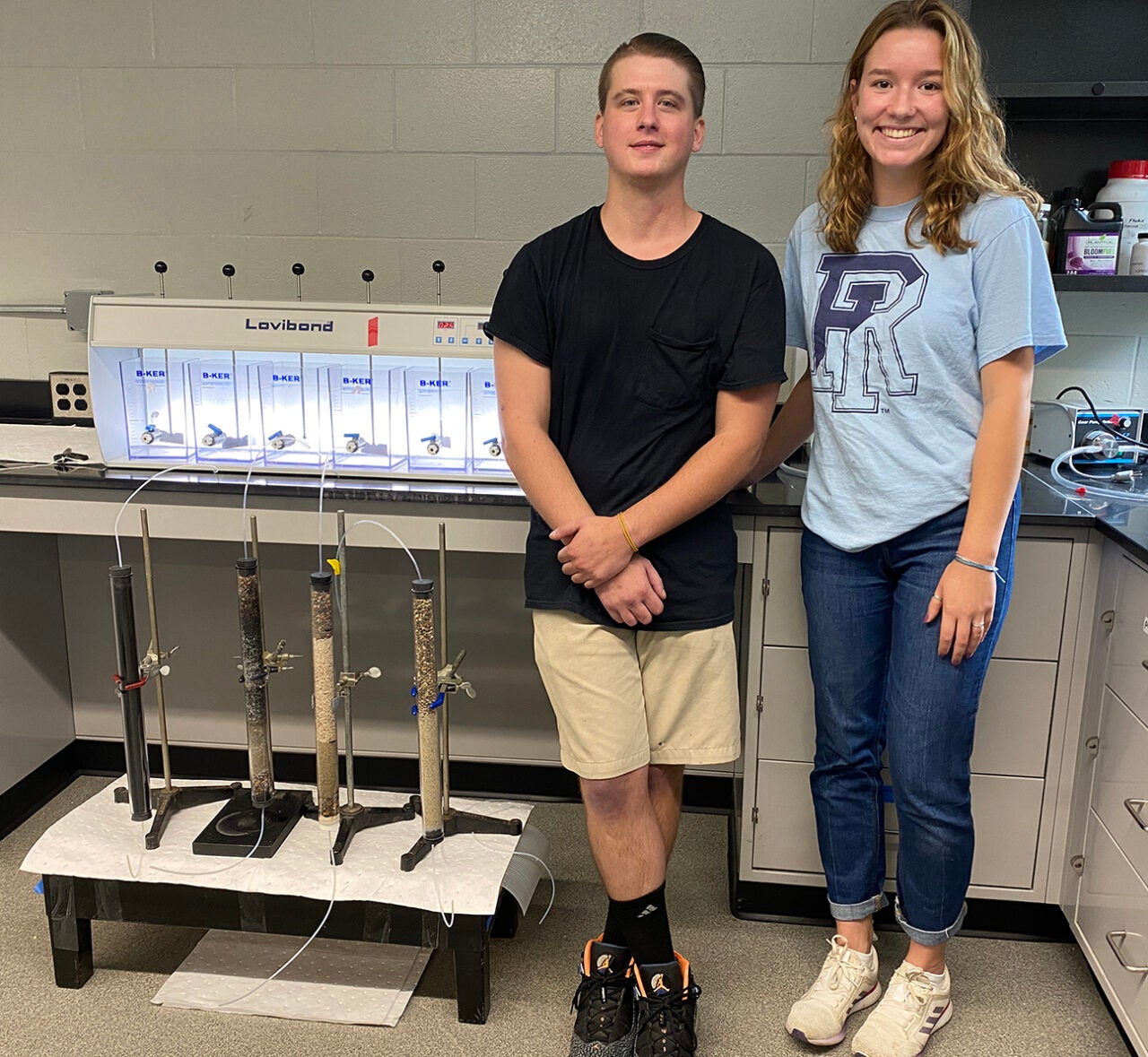Cleaner than charcoal
Jennifer Newport has
always had an interest in environmental conservation, but it wasn’t until she
got to the University of Rhode Island that she discovered what she calls her
“niche discipline” – water treatment and water resources. 
URI senior Jennifer Newport (right) poses with graduate student
Brendan McCarron in the lab where they are testing seashells
to filter drinking water. (Photo courtesy of Jennifer Newport.)
As she begins her last semester before graduating in December, the Cranford, New Jersey, resident is tackling a research project aimed at developing a sustainable drinking water treatment system using seashells.
“Most water treatment plants use granular activated carbon to treat the water and extract heavy metals and other pollutants,” said Newport, an environmental science and management major with a minor in global water resources.
“But to create granular activated carbon, you have to
burn organic matter, which produces pollution. Seashells have similar
properties to granular activated carbon, and it’s an abundant renewable
resource, so we’re testing it to see if it’s an effective way of treating
drinking water.”
Working with URI Assistant Professor Soni Pradhanang and graduate student Brendan McCarron, Newport spent the summer collecting water samples from the Chipuxet River in Kingston and filtering it through a mock water treatment plant set up in a lab on campus. She compared the water treatment capabilities of seashells to granulated carbon and other filtering materials like sand and gravel.
“Every other week, I’d go to the river with my
waders on and use a couple field probes to collect the flow rate of the river,
the temperature and oxygen level of the water, and collect five-gallon sample
containers of water to bring back to the lab,” Newport said. “And throughout
the week I’d use the water I had collected in my testing.”
While she is still
analyzing her results, Newport was pleased with her first research experience.
“I learned so much about taking detailed
notes, organizing different kinds of data, and how to read the data,” she said.
“It was a challenge to identify what the data means and what trends you’ve
acquired after collecting all this information.”
She also found the
experience to be tremendously helpful in networking with other researchers.
“It was a very different experience being on campus in the summer for the first time,” said Newport, who serves as president of the URI Student Alumni Association and volunteers with Habitat for Humanity and the URI Service Corps.
“I really enjoyed getting to
know my professor on a personal level. And it was a really good networking
opportunity to meet and learn from a lot of Ph.D. and master’s students in the
Geosciences Department.”
Newport’s research was
supported by the URI Coastal Fellows Program, a unique initiative designed to
involve undergraduate students in addressing current environmental problems.
Now in its 25th year, the program pairs students with a mentor and research
staff to help them gain skills relevant to their academic major and future
occupations.
As Newport looks ahead
to graduation in less than four months, she is beginning the process of
applying to graduate schools while also seeking a short-term job in the field
of hydrogeology.
“I really enjoyed
learning about water treatment processes and could see myself going into
something like that very easily,” she said. “I also really liked the field work
in this project, so that’s something I want to keep doing. Hopefully I’ll end
up working on some sort of consulting collaborative team.”